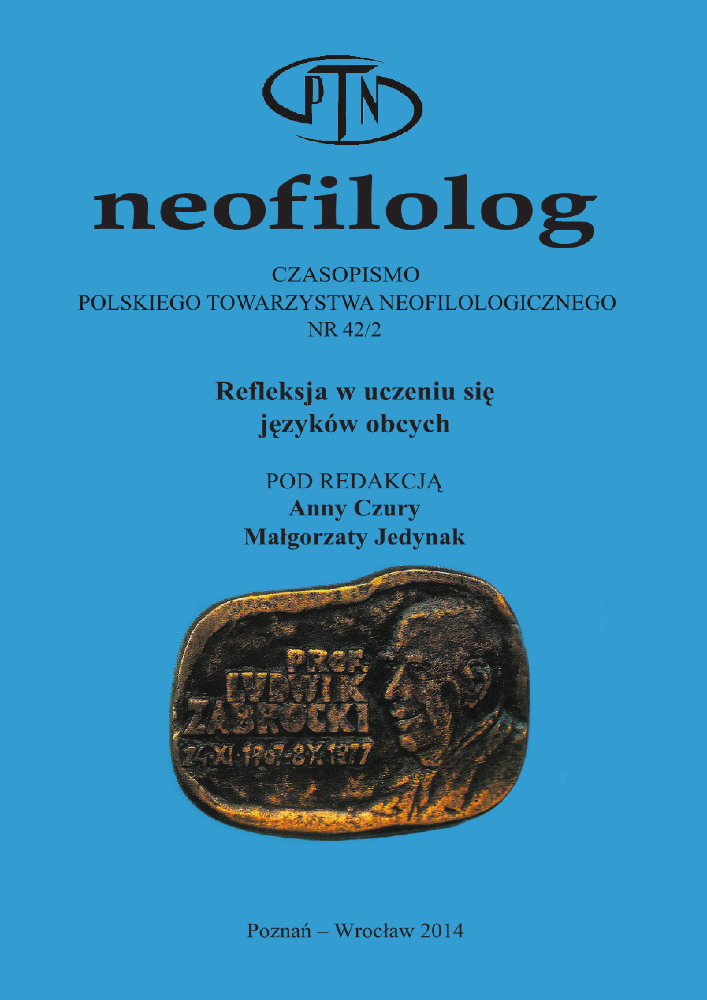Abstract
Compared to colleagues teaching foreign languages for general purposes, who can use ready-made syllabuses or programs, the LSP teacher has to reflect on methodology at the level of course planning. The scope and nature of the proposed course content is tailored to the specific needs of a student. The analysis of these needs is based on interviews and questionnaires. There are many examples of such tools, but none of them are universal or exhaustive, nor can they be. The purpose of this article is to propose a set of parameters to facilitate investigation of the educational context, which could be a starting point for the development of question-naires tailored to specific education needs.References
Carras, C., Tolas, J., Kohler, P., Szilagyi, E. 2007. Le Français sur objectifs spécifiques et la classe de langue. Paris: CLE International.
Delhaye, P. 2006. „De l’analyse de besoins à l’évaluation: le Diplôme de Compétence en Langue”. Synergies Pays riverains de la Baltique 3: 127-140.
Gajewska, E., Sowa, M. 2014. LSP, FOS, Fachsprache… Glottodydaktyka języków specjalistycznych. Lublin: Werset.
Eurin Balmet, S., Henao de Legge, M. 1992. Pratiques du français scientifique. Paris: Hachette.
Lehmann, D. 1993. Objectifs spécifiques en langue étrangère. Les programmes en cours. Paris: Hachette.
Mangiante, J.-M. 2007. „Une démarche de référentialisation en français des professions: le partenariat université – Chambre de Commerce et d’Industrie de Paris (CCIP)”. Le Français dans le monde. Recherches et applications 42: 129-144.
Mangiante, J.-M., Parpette, Ch. 2004. Le français sur Objectif Spécifique: de l’analyse des besoins à l’élaboration d’un cours. Paris: Hachette.
Velásquez-Bellot, A. 2004. „Metodología teórica del proceso de elaboración de un diseño curricular para la enseñanza de las lenguas con fines específicos”. Revista Electrónica de Didáctica del Español como Lengua Extranjera. http:// www.educacion.gob.es/dctm/redele/Material-RedEle/Revista/200402/2004r edELE216Velazquez.pdf?documentId=0901e72b80e06a67 DW 21.10.2013.
License
Copyright (c) 2019 Neofilolog

This work is licensed under a Creative Commons Attribution-NoDerivatives 4.0 International License.
Authors
Authors of texts accepted for publication in Neofilolog are required to complete, sign and return to the Editorial team’s office the Agreement for granting a royalty-free license to works with a commitment to grant a CC sub-license.
Under the agreement, the authors of the texts published in Neofilolog grant Adam Mickiewicz University in Poznań a non-exclusive, royalty-free license and authorize the use of Attribution-NoDerivatives 4.0 International (CC BY-ND 4.0) Creative Commons sub-license.
The authors retain the right to the free disposal of the work.
Users
Interested Internet users are entitled to use works that have been published in Neofilolog since 2017, under the following conditions:
▪ attribution – obligation to provide, together with the distributed work, information about the authorship, title, source (link to the original work, DOI) and the license itself.
▪ no derivatives – the work must be preserved in its original form. Without the author's consent, it is not possible to distribute the modified work in the form of translations, publications, etc.
Copyrights are reserved for all texts published since 2017.
Miscellaneous
Adam Mickiewicz University in Poznań retains the property right as a whole (layout, graphic form, title, cover design, logo etc.).
